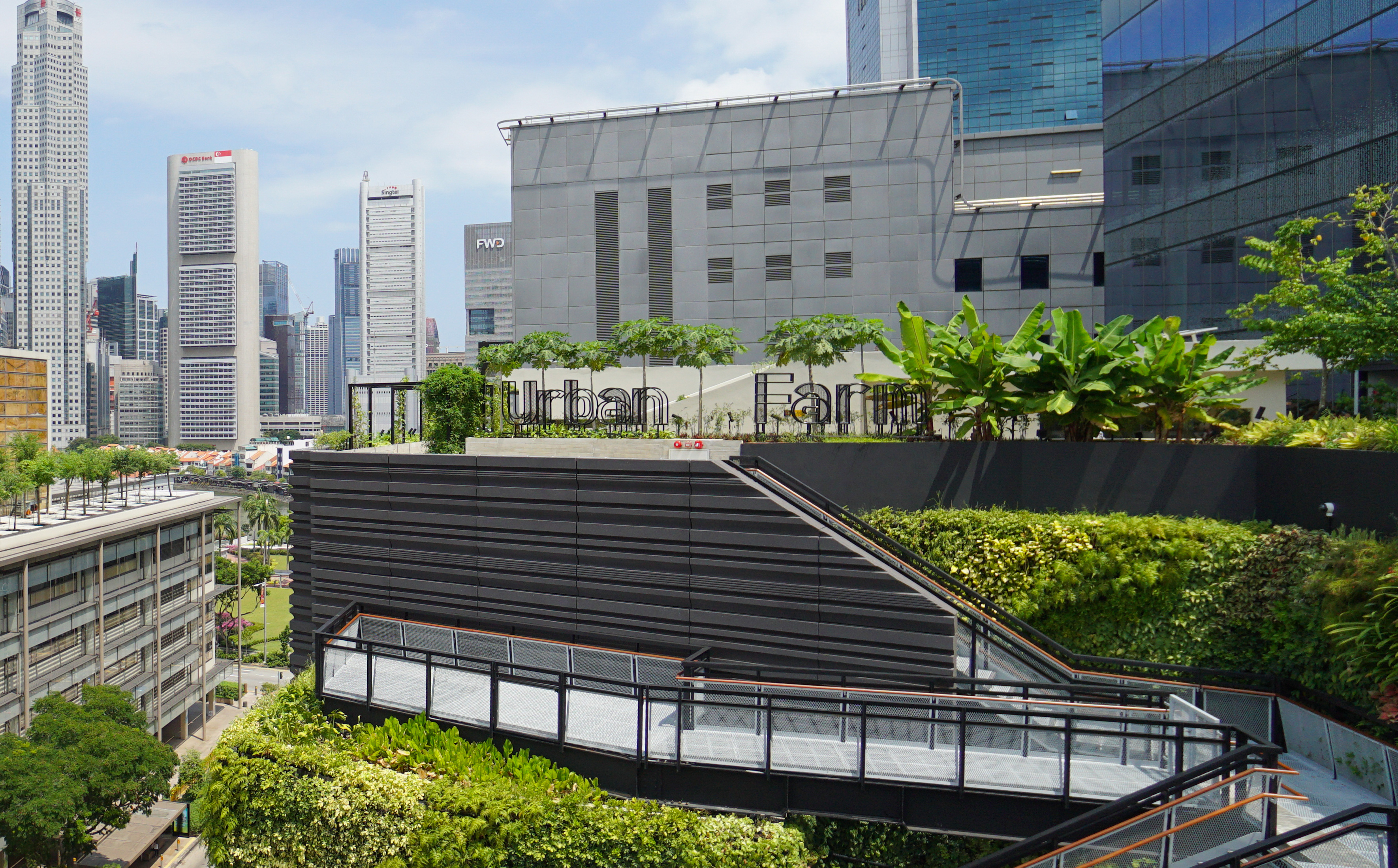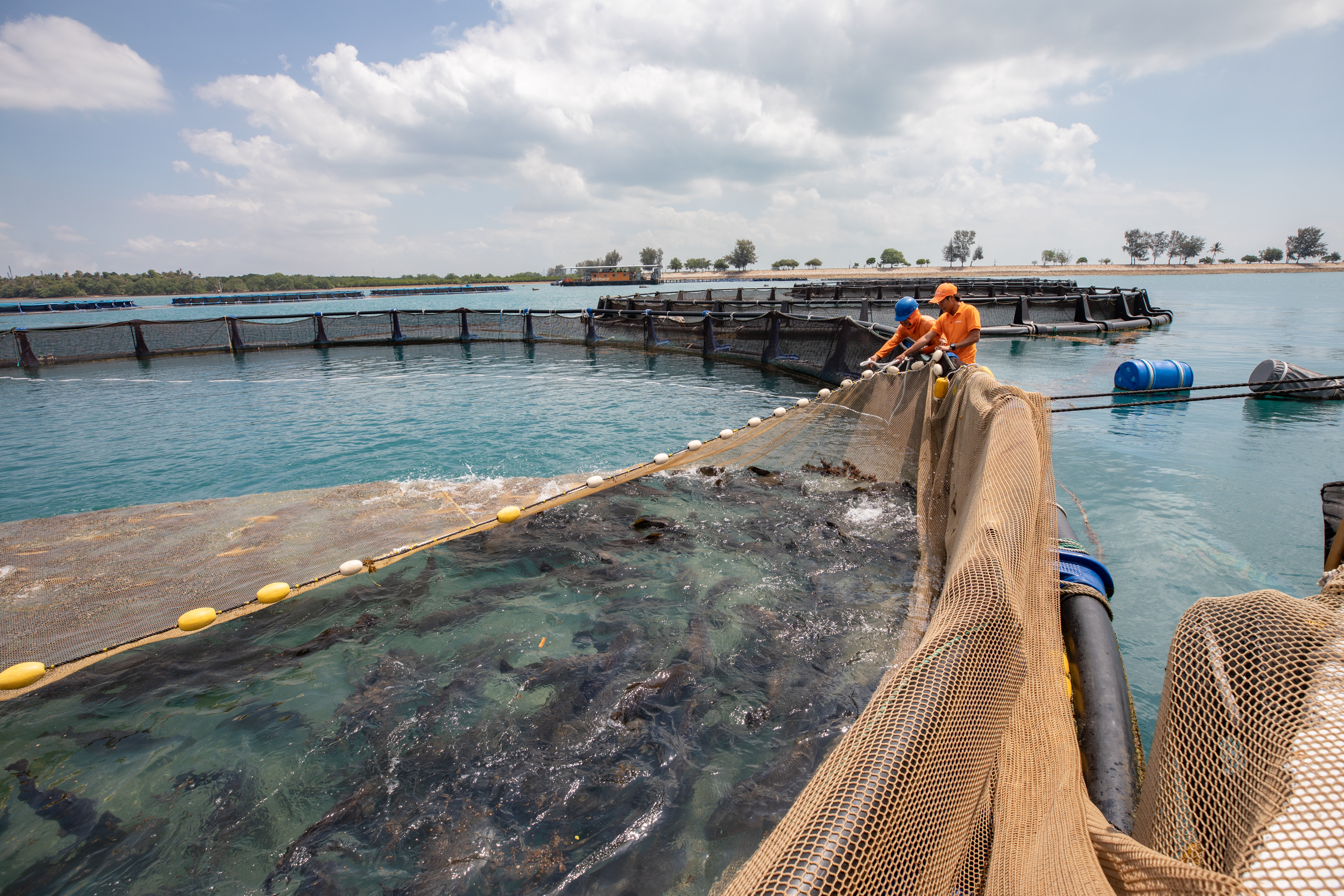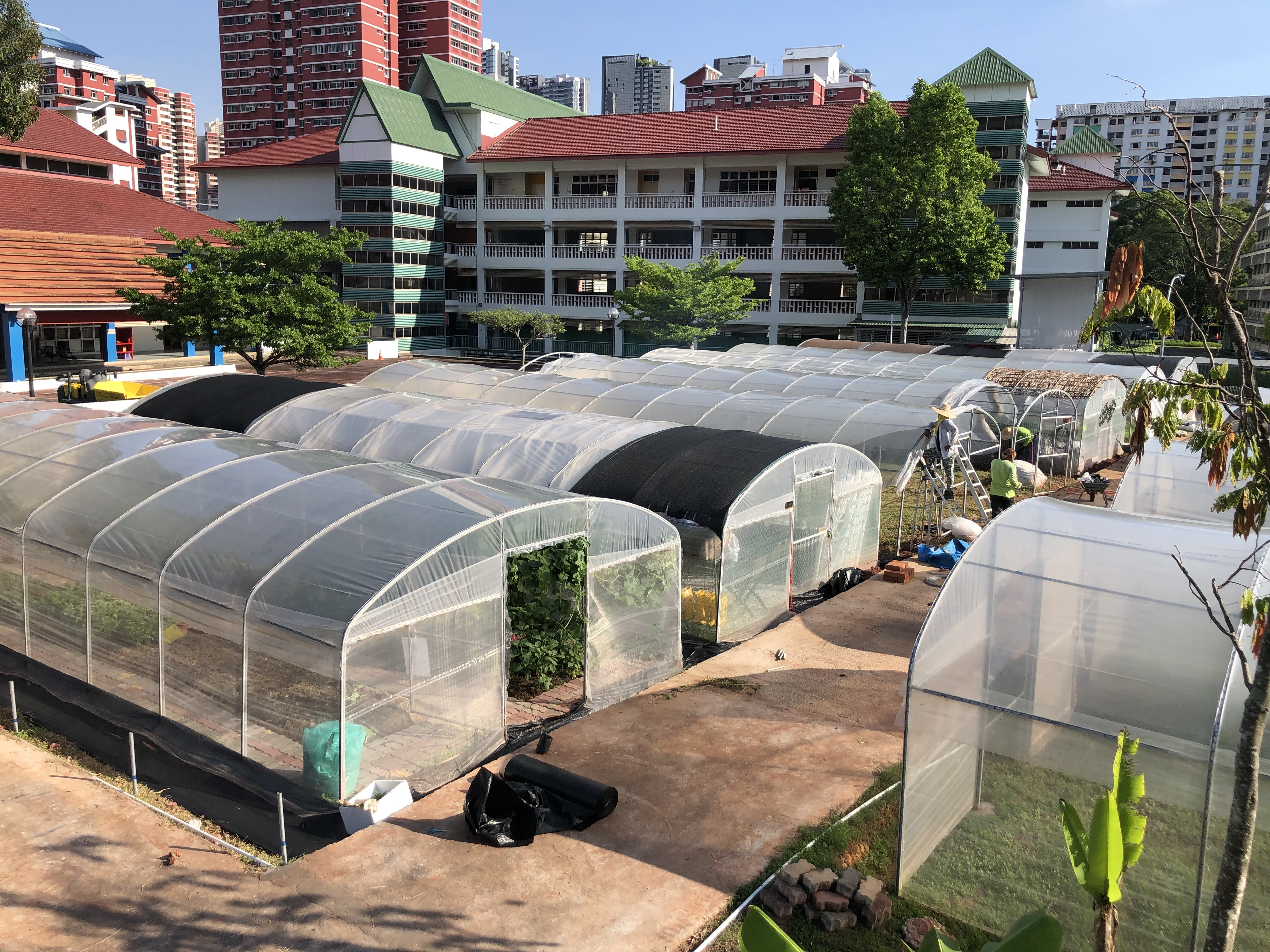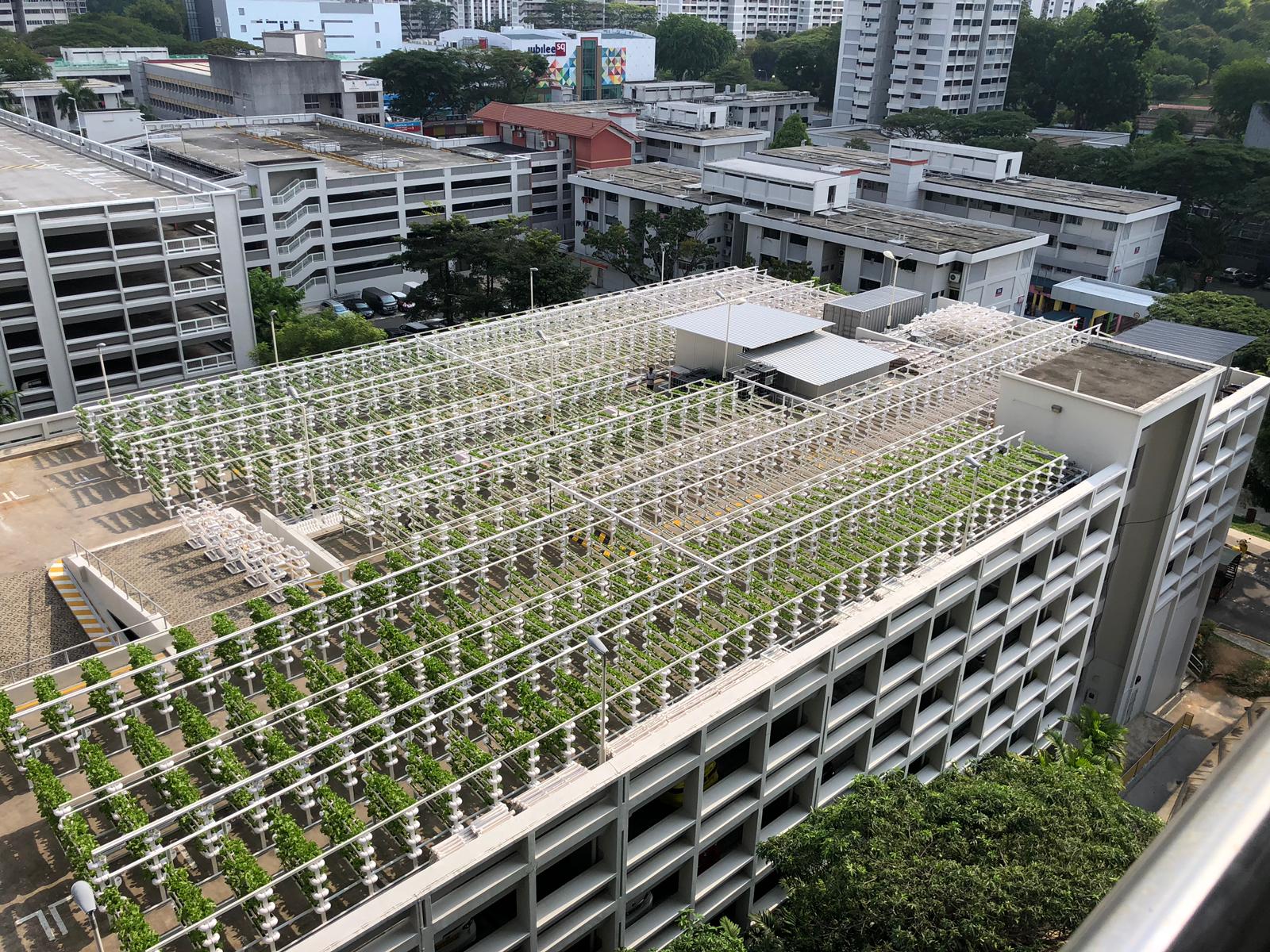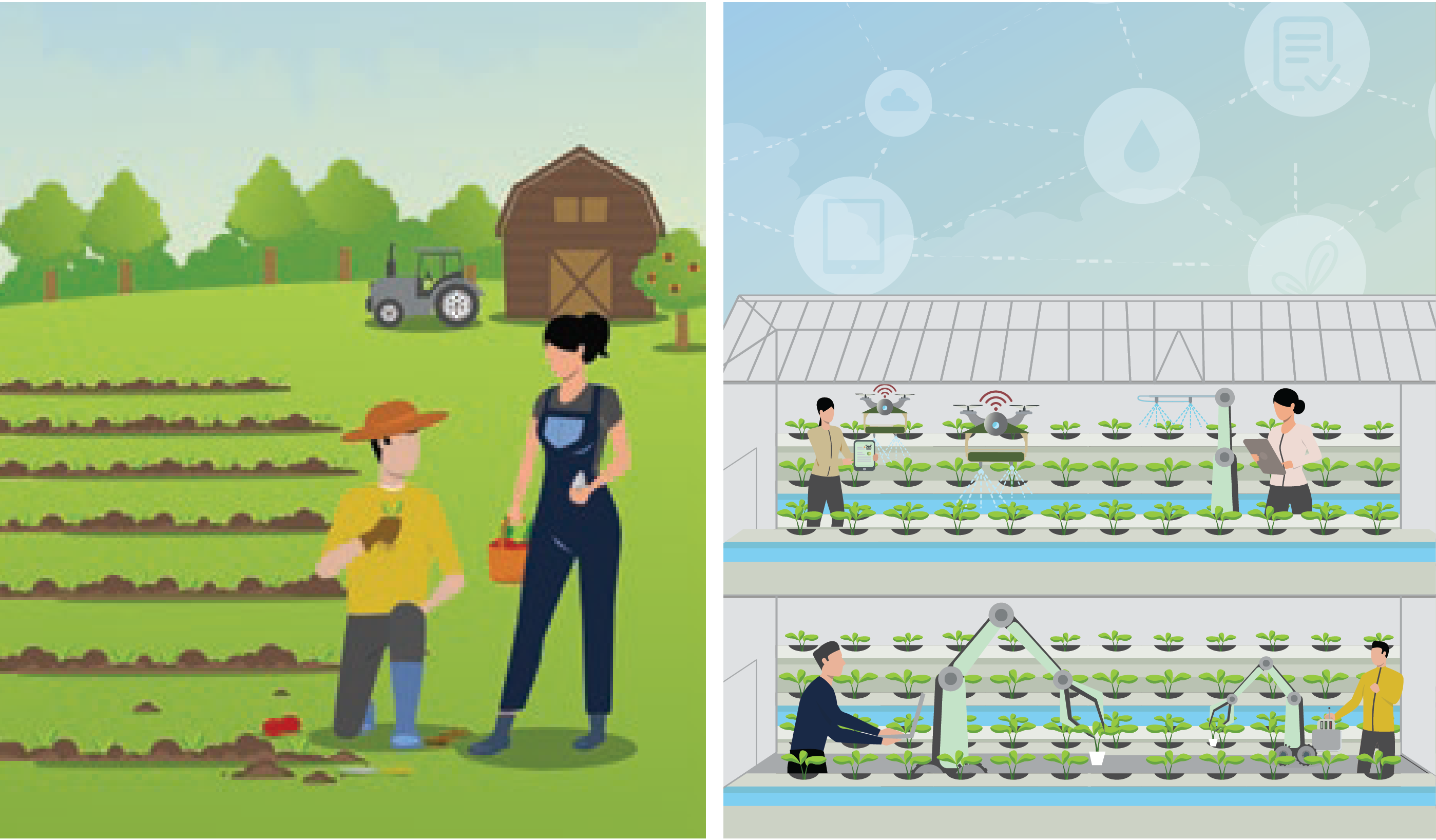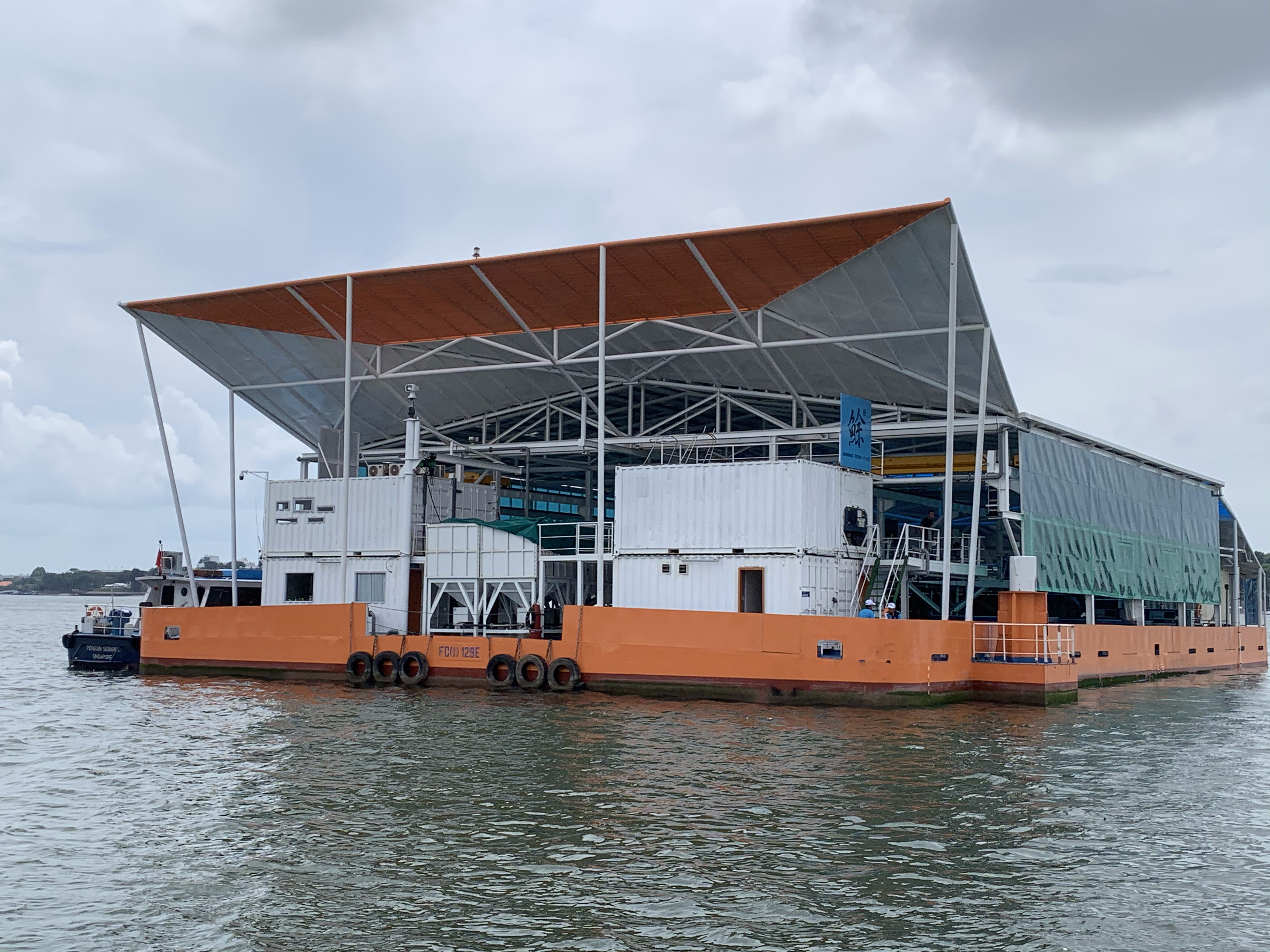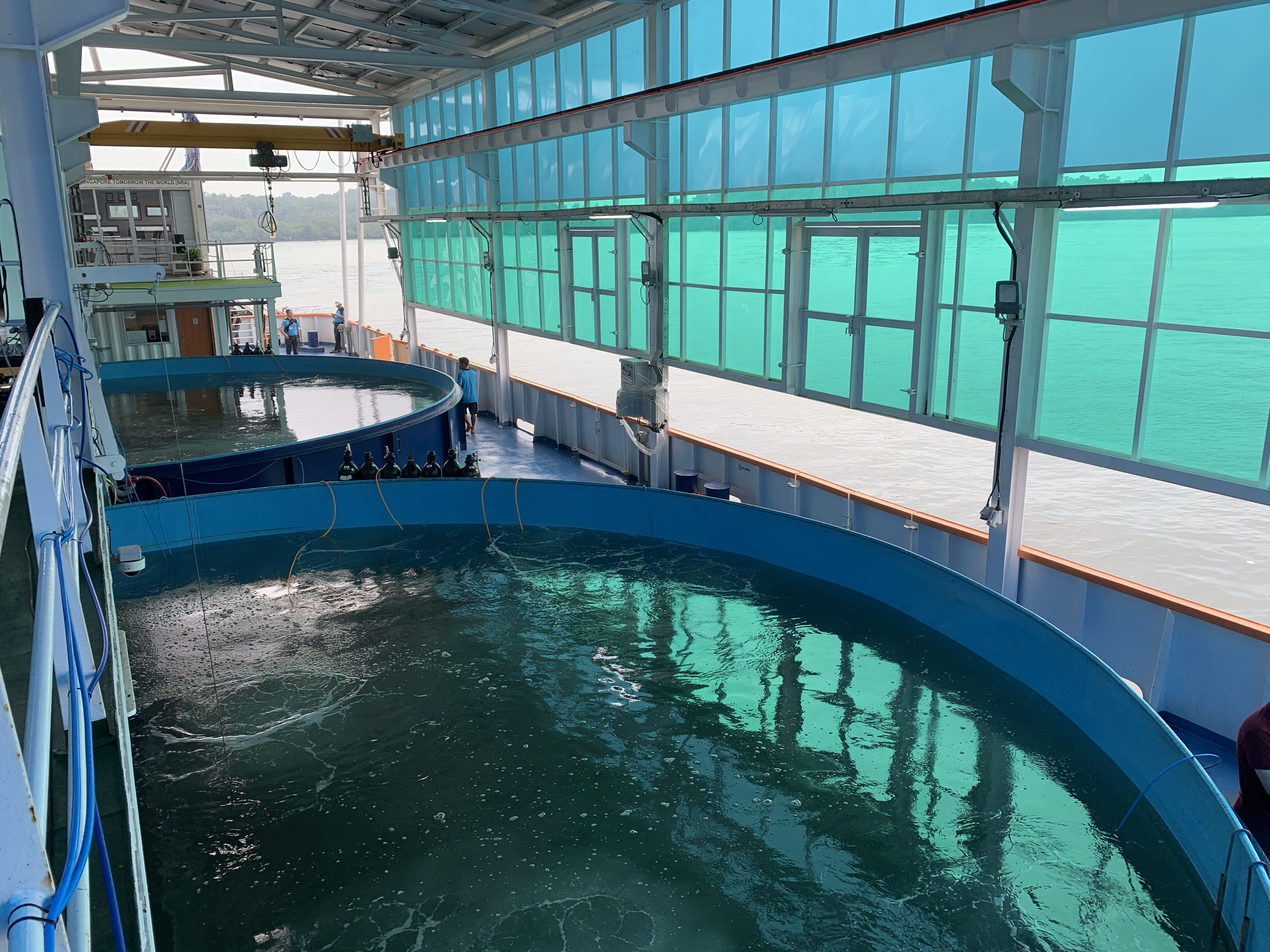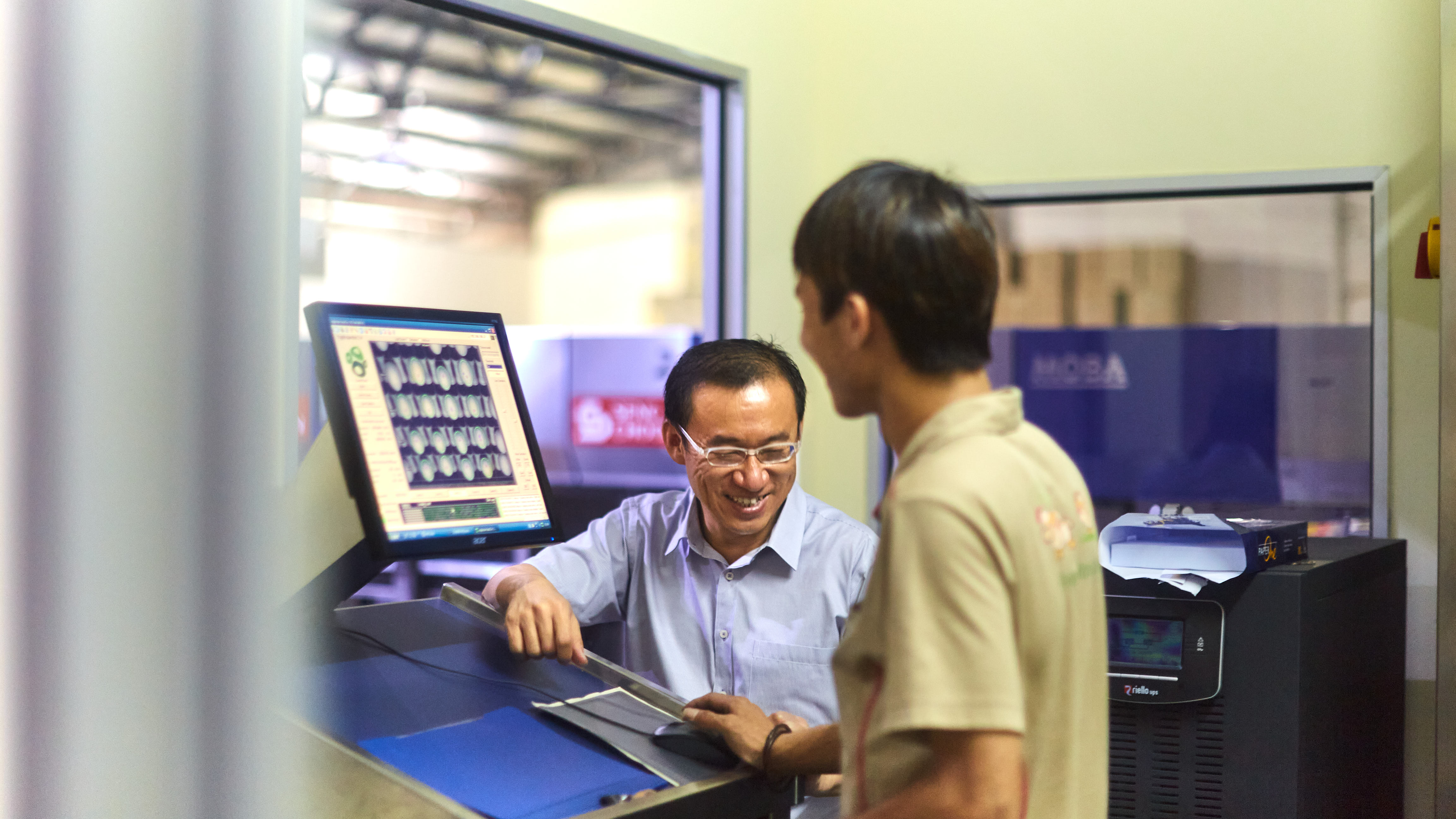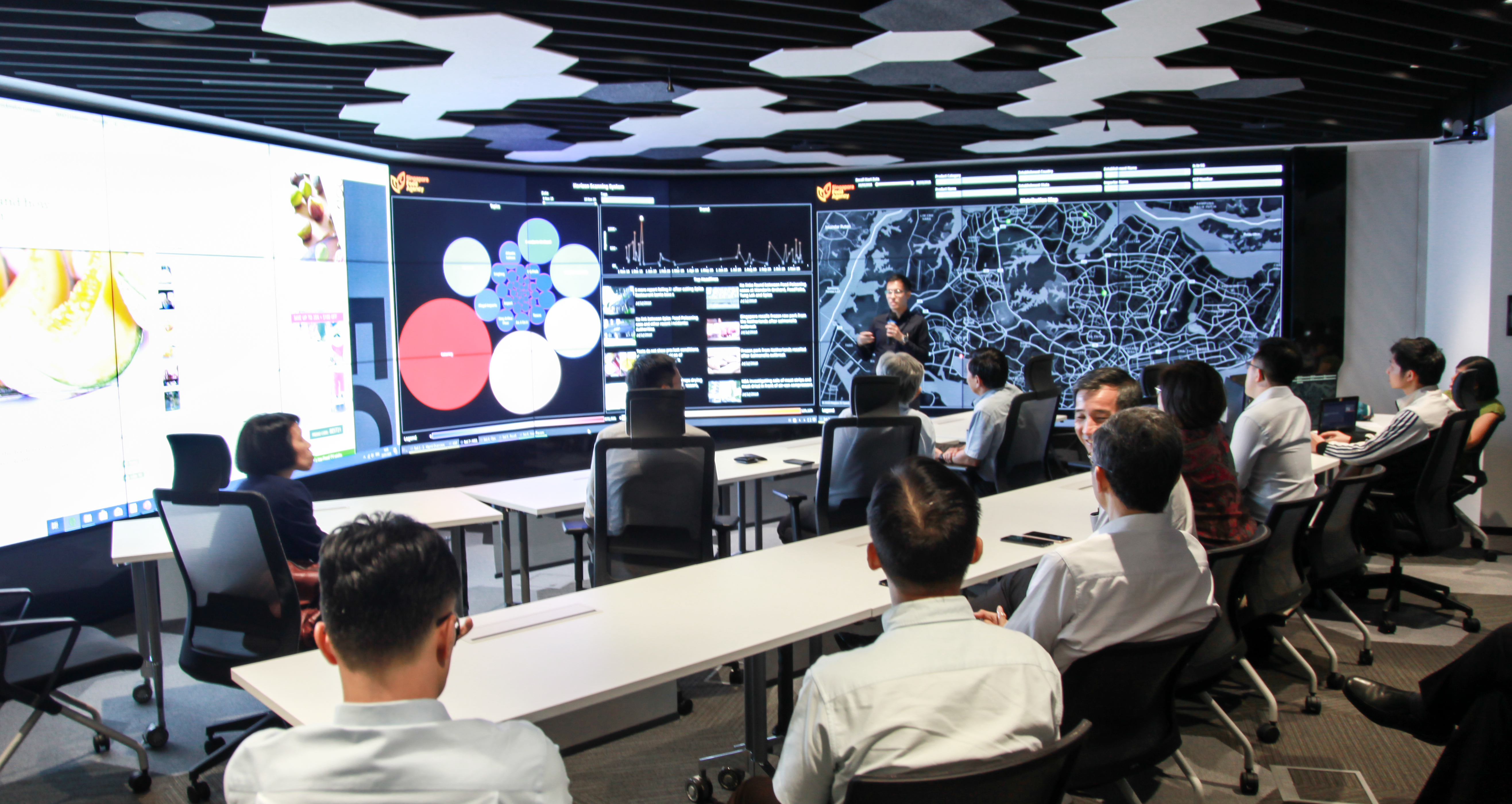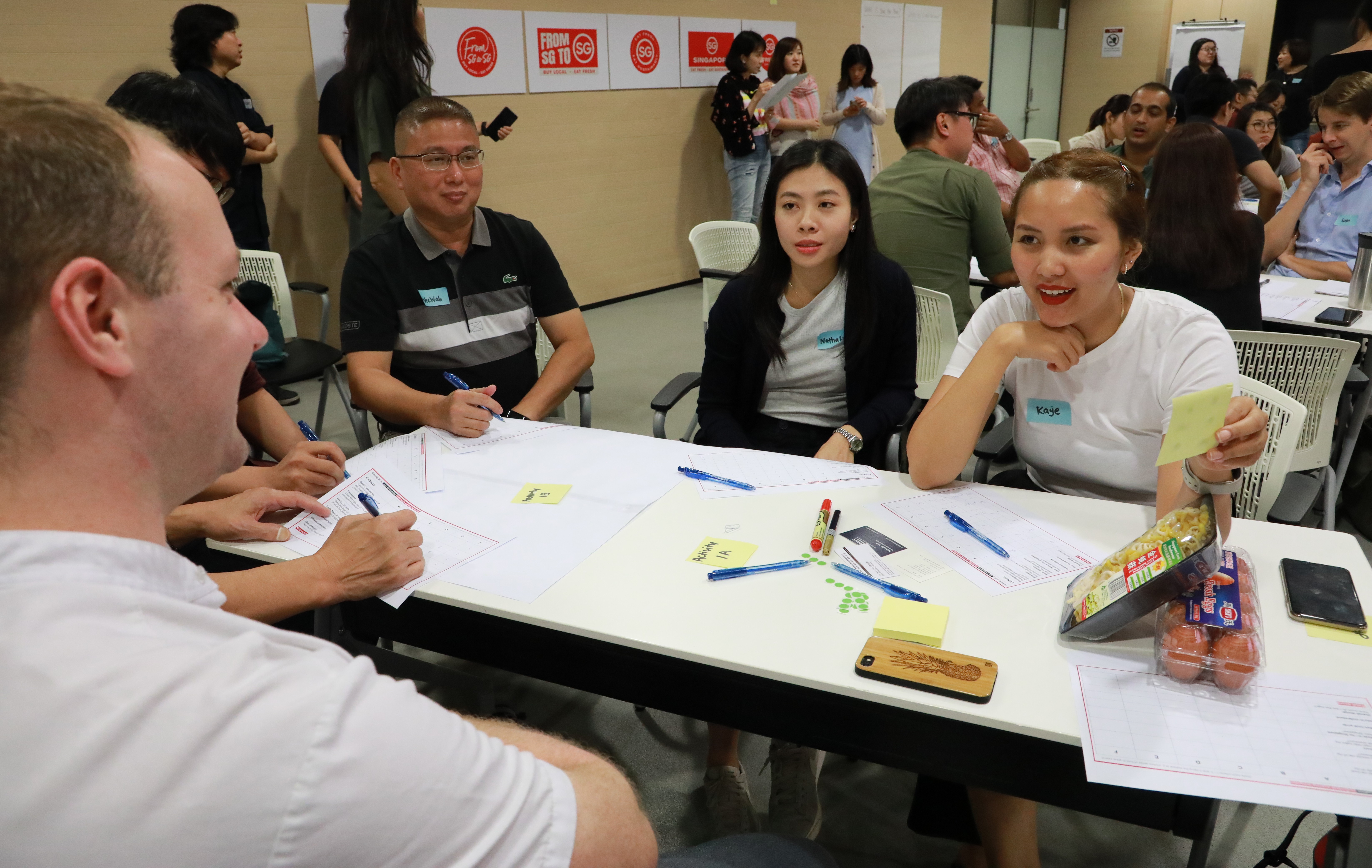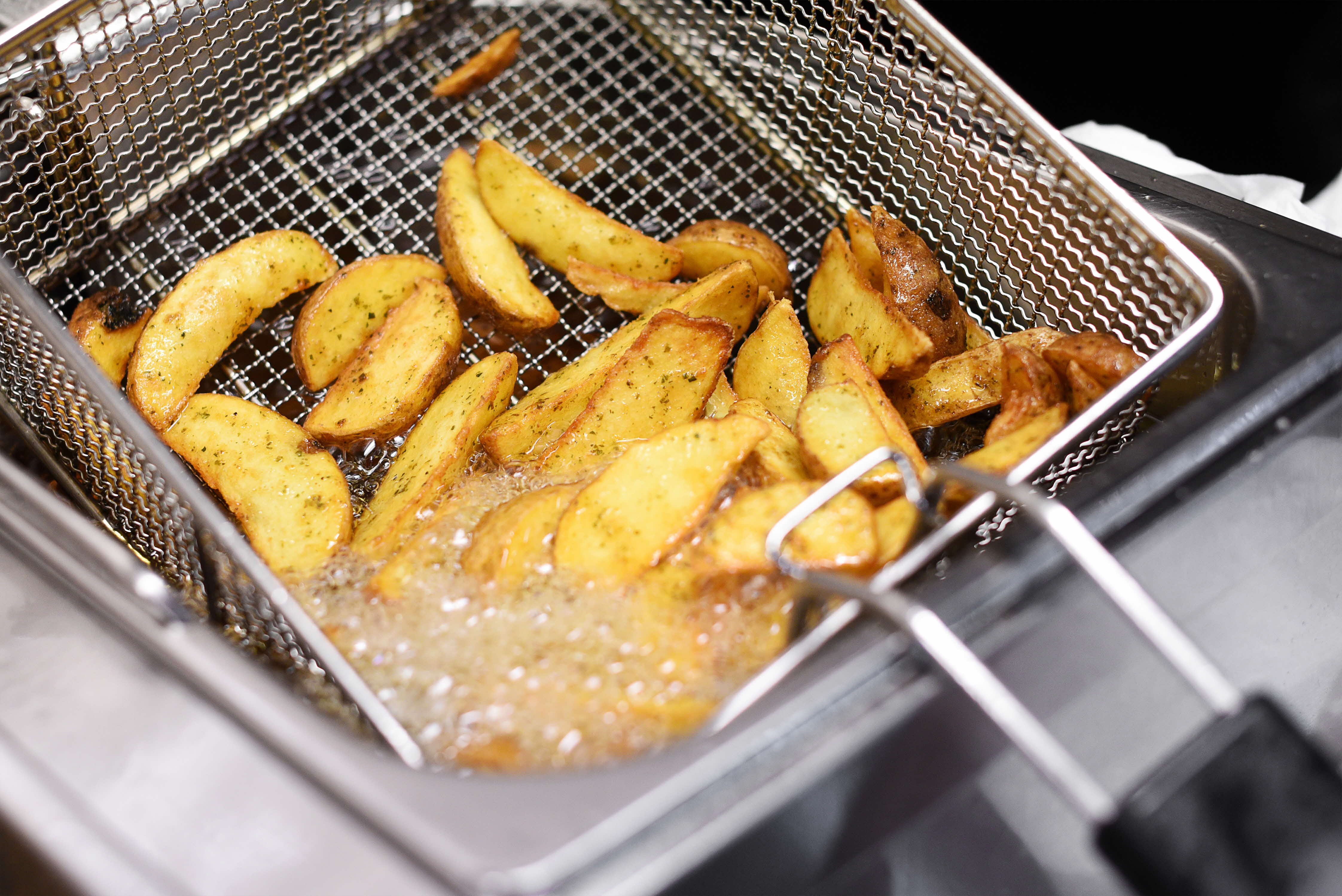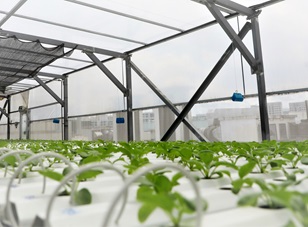Rooftop urban farm at Funan Mall, Singapore. Image: nuttstock / Shutterstock.com
As with most issues that impact national security in Singapore, it often seems that the odds are stacked against us. Food security— access to safe and nutritious food— is a challenge on several fronts. Singapore is a small city-state with limited resources, with only 1% of land available for food production, and over 90% of food is imported from an increasingly disrupted world.
The COVID-19 pandemic has further amplified the gravity of safeguarding food security. The citystate has been proactively planning for long-term food security through the Singapore Food Agency’s (SFA) strategy of “three food baskets”— diversifying food sources, growing locally and growing overseas. This approach has served the city well in securing a supply of safe food.
Diversified Sourcing Is Key
Singapore’s food importers leverage the nation’s connectivity and the global free trade environment to import from multiple sources in about 170 countries and regions worldwide. Should there be a disruption to any one source, importers are able to tap alternative food sources and ensure supply remains stable.
It is an ongoing effort to avoid being over-reliant on a single source and to mitigate the impact of food supply disruptions. With eggs, for example, importers made great efforts to diversify from traditional sources around the region and expanded the import network to include new sources as far away as Europe.
Lockdown measures brought about by COVID-19 underscored Singapore’s vulnerabilities to supply disruptions in food. It was not by luck that the city’s food supply remained stable and market shelves continued to be promptly restocked—it was the result of a deliberate whole-of-government strategy to diversify food sources.
To keep the city’s diversified food supply lines intact amid the COVID-19 global pandemic, SFA worked with the Ministry of Trade and Industry and Enterprise Singapore (ESG) to monitor Singapore’s food supply situation. Together with the Ministry of Foreign Affairs, these economic agencies worked with like-minded countries to keep trade links open.
In March 2020, Singapore, along with Australia, Brunei Darussalam, Canada, Chile, Lao PDR, Myanmar, New Zealand, and Uruguay, affirmed our commitment to maintaining open and connected supply chains.
Singapore has been planning for long-term food security through the strategy of “three food baskets”— diversifying food sources, growing locally and growing overseas.
Unlocking sea space for sustainable fish farming would help boost local production of fish and enhance food security
Local Production: An Important Buffer
In attempting to beat the odds, Singapore is compelled to push the frontiers of innovation to grow food in our city. Local production provides an important buffer in times of food supply crises. Singapore must grow its own food, not just productively, but also in ways that must be sustainable for the environment and the future.
SFA drives innovation in local farms with the ambitious goal of producing 30% of Singapore’s nutritional needs by 2030 as part of our “30 by 30” plan. To meet this goal, we need a holistic and longterm approach to space-planning, boosting agri-food technology and developing local agri-specialists.
To facilitate and support the establishment of hi-tech and productive farms in Singapore, SFA tenders out land based on qualitative criteria such as production capability, production track record, relevant experience and qualifications, innovation and sustainability.
In addition, a masterplan for the greater Lim Chu Kang (LCK) region, spanning about 390 ha (3.9 km2 ) of land, will be undertaken in consultation with stakeholders over the next two to three years. The redeveloped LCK agri-food cluster will produce more than three times its current food production. SFA will explore the development of shared facilities to lower production costs and conserve resource use, as well as put in place water, electricity and transport infrastructure that support hi-tech farming systems and circular economy principles.
Building on these efforts to grow Singapore’s agri-tech sector, SFA will continue to partner with the Economic Development Board and ESG to attract best-in-class global agri-tech companies, as well as to nurture promising homegrown agri-tech companies into local champions and help them to expand overseas.
Exploring Alternative and Underutilised Spaces
Urban food solutions are expected to play a key role in global food security. While there are progressive enterprises operating out of farmlands and industrial estates, some agricultural game-changers are also taking root in unconventional areas— indoors, on rooftops and in underutilised spaces.
Besides managing land space, a broad scan of the deeper Southern Waters was conducted to identify potential aquaculture sites where sustainable farming systems could be adopted.
By redeveloping and repurposing rooftops and underutilised spaces in the cityscape, farming is starting to take root through local farmers such as City Sprouts and Citiponics.
SFA worked with the Singapore Land Authority (SLA) to transform the former Henderson Secondary School site into Singapore’s first integrated space comprising an urban farm, childcare centre and nursing home within a state property. The farm space within the site was awarded in May 2019 to City Sprouts, and has become a vibrant destination for young and old to learn about urban farming and enjoy a relaxing day out.
Citiponics, the first commercial farm located on a multi-storey carpark in a residential neighbourhood, harvested its first yield of vegetables in April 2019. In September 2020, another nine sites at multi-storey carparks were awarded for urban farming. The successful bidders included proposals for hydroponic and vertical farming systems with a variety of innovative features, such as IoT, blockchain technology and automated climate control. These sites have the potential to collectively produce around 1,600 tonnes of vegetables annually.
City Sprouts is a social enterprise that strives to encourage urban farming while building meaningful relationships between communities.
Image: City Sprouts
In a high-density, urban environment like Singapore, alternative spaces such as rooftops of car parks are being adapted for urban farming.
Supporting Tech-Adoption in Local Farms
The Agriculture Productivity Fund (APF) supports local farms in their capability development and drive towards higher productivity. Through APF, SFA co-funds the adoption of farming systems to better control environmental variables, test-bed technologies and boost production capabilities. Between October 2014 and September 2020, a total of almost $42 million has been committed to 115 farms.
In addition, the government has set aside $144 million for research and innovation efforts in the farming sector. The research and innovation programme focuses on three main areas: improving sustainable urban food production techniques; furthering advanced biotech-based protein production; and developing innovations in food safety science.
The COVID-19 pandemic presented greater impetus to speed up local food production capacities. In September 2020, SFA awarded $39.4 million to nine companies under the 30x30 Express Grant to quickly ramp up food-farm outputs over the next six to 24 months.
Currently, an average vegetable farm in Singapore occupies around 2 ha (20,000 km2 ) of land and produces about 130 tonnes/ha/year. In contrast, a hi-tech, high productivity vegetable farm has the potential to produce over 1,000 tonnes/ha/year with less than one ha (10,000 km2 ) of land.
Image L-R: Centre for Liveable Cities, Singapore Food Agency
Controlling Environmental Variables for Exponential Growth
Rapid progress in agri-tech has now made it possible to intensify urban food production in a sustainable and climate-resilient way
A case in point is Eco-Ark—a purpose-built, floating, closed containment aquaculture system developed by an APF recipient, Aquaculture Centre of Excellence Pte Ltd. Eco-Ark keeps fishes in tanks that are isolated from the external environment, so variations in temperature and oxygen can be controlled. This offers protection from plankton blooms, oil spills, waste discharge and warming waters—all factors that can wipe out fish stocks. With technology, seawater and used water are treated and reused efficiently. The facility is expected to produce 166 tonnes of fish annually, more than 20 times higher than the minimum production level set for Singapore coastal fish farms today.
Eco-Ark keeps fishes in tanks that are isolated from the external environment. This offers protection from plankton blooms, oil spills, waste discharge and warming waters.
Given Singapore’s land constraints, farming at sea is made more productive, sustainable and climate-resilient through technological innovations at farms like Eco-Ark.
Farming on the Cutting Edge
With advanced robotic and digital systems increasingly being used in farming, Singapore’s vegetables farmers have also become innovative agri-engineers and specialists in their own right.
With support from the 30x30 Express Grant, Indoor Farm Factory Innovation Pte Ltd will set up an indoor vegetable farm with a vertical integration growth system up to 8 meters in height in a fully controlled and pesticide-free environment. The farm will leverage AI farming systems integrated with IoT monitoring, dosing irrigation and an advanced environmental control system to achieve optimum growing conditions all year round.
Seng Choon, a chicken egg farm that has been in business for more than 30 years, has also proved itself a modernist in its operations. The company uses a computer that scans eggs to ascertain if they are clean; while feeding systems, temperature controls and waste cleaning systems have been automated with SFA’s support.
Automation is a key component at Seng Choon, a chicken egg farm, where many of the farm’s processes are done by machines or with minimal handling.
SFA Operations Centre serves as an experimentation laboratory to trial the use of advanced analytics and data visualisation for food supply traceability, food safety alerts and food recall.
Developing Agri-Specialists
For Singapore, the farming scene no longer comprises sprawling lands or rows of manual workers. The “future” of farming, in terms of hitech systems, engineering precision and sustainable concepts, is a necessity that has already arrived.
Singapore needs to redouble efforts to prepare citizens for career opportunities in the growing agri-food sector. SFA has started work with schools and educational institutions to develop and build curricula in relevant areas. To train the agri-food industry’s manpower and talents, SFA collaborates with Workforce Singapore, SkillsFuture Singapore, the Employment and Employability Institute, polytechnics and Institutes of Technical Education to develop agriculture and aquaculture programmes.
Growing Public Support for Local Produce
Singapore’s efforts in ensuring food security would not be complete without support from consumers. To raise public awareness of local produce, SFA and the Singapore Agro-Food Enterprises Federation (SAFEF) continue to organise SG Farmers’ Markets, and jointly launched the “e-SG Farmers’ Market” section on the popular Redmart online shopping app. We also partner with grocery stores regularly to drive consumer purchases.
To boost recognition of local produce among consumers, SFA brought the industry and public together to create a new “SG Fresh Produce” logo. Farmers have been using this emblem on their packaging since August 2020. A website was also launched to provide a trove of information on locally farmed food.
While the COVID-19 pandemic led to import restrictions, it also helped to accelerate support for local produce. Eric Neo, Executive Chef at Intercontinental Singapore, shared with SFA that he turned to local produce as an alternative when European imports became unavailable. He believes that many chefs would have followed suit and “can see the superior quality of these produce”. Neo said: “It is every chef’s dream to use local produce. Local chefs using local produce— that’s something to feel proud of.”
While the COVID-19 pandemic led to import restrictions, it also helped to accelerate support for local produce.
Encouraging words from supporters such as Chef Neo are a boost to SFA’s efforts in raising public and industry awareness of the merits of local produce. With public support for local farmers and other key measures, Singapore can beat the odds in ensuring food security in this ever-evolving, ever-disrupted world.
Co-creating the ‘SG Fresh Produce’ logo to promote and help customers better recognise local produce.


